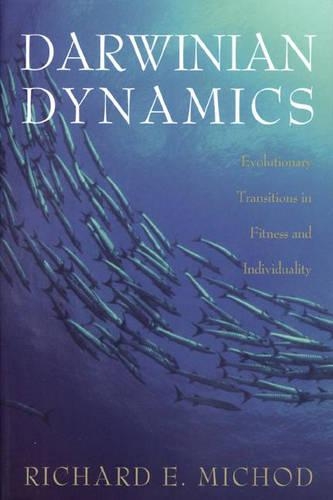
Darwinian Dynamics: Evolutionary Transitions in Fitness and Individuality
(Paperback)
Publishing Details
Darwinian Dynamics: Evolutionary Transitions in Fitness and Individuality
By (Author) Richard E. Michod
Princeton University Press
Princeton University Press
10th April 2000
United States
Classifications
Professional and Scholarly
Non Fiction
Genetics (non-medical)
576.82
Physical Properties
Paperback
280
Width 197mm, Height 254mm
397g
Description
Offering an alternative interpretation of evolution and fitness concepts, this book contends that evolution has no enduring products. Instead, it argues that what matters is the process of genetic change. The author considers the principles behind the hierarchically tested levels of organization that constitute life: genes, chromosomes, genomes, cells, multicellular organisms, and societies. The text goes on to explain how cooperation and conflict in a multilevel setting leads to new levels of fitness. He constructs a model of fitness drawing on recent developments in ecology and multi-level selection theory and on new explanations of the origin of life.
Reviews
"Darwinian Dynamics is an excellent and masterful synthesis of the current understanding about how evolutionary principles work at the various levels of biological organization... Much like Einstein's theories of relativity extended classical mechanics, Michod's multi-selection theory is an extension of classical selection theory... Well produced and current... Michod has written what should be a classic for decades to come."--Norman A. Johnson, Bioscience "Individuality and fitness, two of the most fundamental concepts in evolutionary theory, are anything but simple. Theoretical biologist Richard Michod reviews and extends the state of the art for these subjects in Darwinian Dynamics... [These are] some of the most exciting advances in modern biology from one of its most able practitioners."--David Sloan Wilson, Human Biology
Author Bio
Richard E. Michod is Professor of Ecology and Evolutionary Biology at the University of Arizona. He is the author of Eros and Evolution: A Natural Philosophy of Sex. Among the volumes he has coedited are Evolution of Sex: An Examination of Current Ideas and The Origin of Values.
